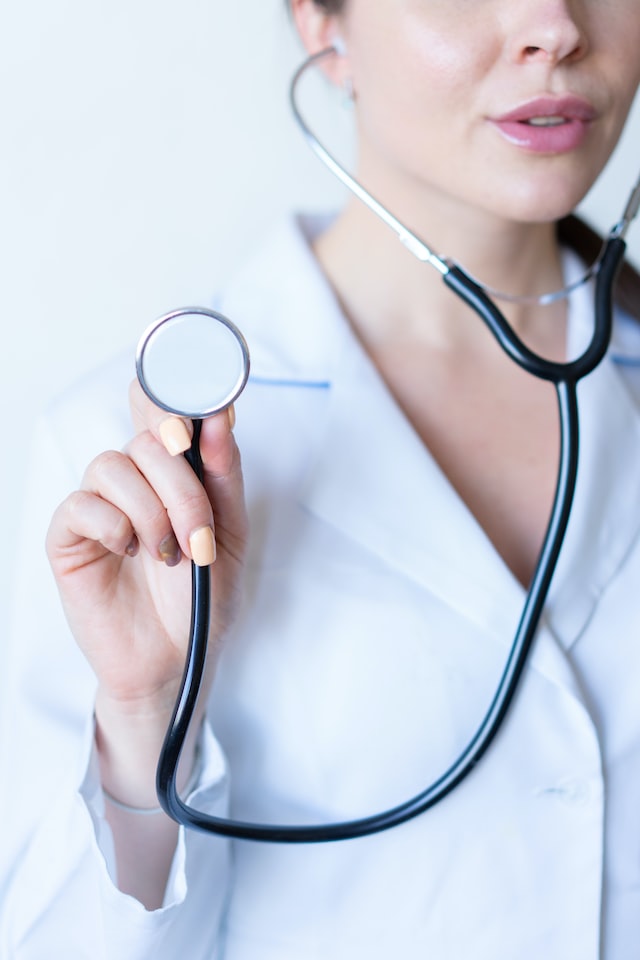
Impacts of High Testosterone Levels on Women
Testosterone is a male sex hormone or androgen that is generated in trace levels in women’s ovaries.
Having high testosterone levels can cause women to suffer from a variety of symptoms. These include weight gain, fatigue, balding, acne, and depression.
A variety of illnesses or hormonal abnormalities can cause hormonal alterations in women. However, hirsutism, polycystic ovarian disease, and congenital adrenal hyperplasia are women’s most prevalent reasons for elevated testosterone levels.
Most often, high testosterone levels in women are caused by an underlying hormone imbalance. If you have a hormone issue, you should speak with your doctor to determine how best to address the problem.
Polycystic Ovarian Syndrome (PCOS)
PCOS is a hormonal condition that primarily affects women throughout their reproductive years. It can be challenging to diagnose, and many women don’t realize they have it until they have problems getting pregnant or gain weight for no known reason.
In PCOS, the ovaries produce high amounts of male hormones called androgens. These hormones interfere with ovulation, which releases an egg each month.
The most common signs of PCOS are irregular or missed periods, enlarged ovaries (polycystic ovaries), and cysts on one or both ovaries. Some people with PCOS also have heavy bleeding during their periods and other problems with ovulation.
Excess androgen levels, insulin resistance, or other problems with the ovaries may cause symptoms. These problems can be treated with medication to control androgen levels or by making lifestyle changes.
Medications to regulate the production of male hormones can help improve symptoms in most women with PCOS. They include drugs to block or reduce the effects of androgens, drugs to induce ovulation, and certain medicines that can improve a woman’s fertility. These medications can be given orally or by injection.
Hirsutism
Hirsutism is a common problem for many women. This condition can be embarrassing and distressing to live with, but there are ways to treat it.
Most cases of hirsutism are caused by polycystic ovary syndrome (PCOS). This is because the ovaries produce too much male hormone, called androgens, in women with PCOS.
It can lead to unwanted androgen-dependent hair growth. It can also cause irregular menstrual periods, acne, and weight gain.
In most cases, hirsutism improves with treatment. The primary treatment is birth control pills, which reduce the number of androgens your ovaries produce. Other medications that slow the production of androgens include spironolactone (Aldactone) and finasteride (Proscar).
The essential thing to remember is that hirsutism should be addressed as soon as possible to avoid long-term health issues. You should see a physician who can diagnose the cause of your hair growth and recommend safe treatment.
If your hirsutism is related to certain medical conditions, such as polycystic ovary syndrome, you may be able to prevent it with diet and exercise. In addition, losing weight can help avoid hirsutism by reducing the levels of androgens in your body.
Adrenal Hyperplasia
Women with high testosterone levels have issues ranging from fertility to weight gain and heart disease. The most common conditions that cause high levels of this hormone in women are polycystic ovary syndrome (PCOS), thyroid problems, and congenital adrenal hyperplasia (CAH).
CAH is a hereditary condition that affects the adrenal glands, which are located above each kidney. They are responsible for making several different hormones, including cortisol, aldosterone (a hormone that helps to regulate salt and water in the body), and androgens.
Almost all cases of CAH are caused by mutations in the CYP21A2 gene that codes for an enzyme called 21-hydroxylase, which synthesizes steroid hormones in the adrenal glands. A deficiency in this enzyme results in low production of the hormone cortisol, which the body uses to respond to stress and illness.
Low cortisol levels can result in several problems, including precocious puberty in boys and girls with classic CAH.
Diet
Diet is a significant part of a woman’s lifestyle and can impact her hormone levels. For example, diet can affect her testosterone levels if she has polycystic ovary syndrome (PCOS).
High testosterone can cause many health concerns in women, including weight gain, acne, depression, hair growth, and increased risk for heart disease and diabetes. Therefore, women need to be aware of their dietary intake and how it can impact their health.
One way to naturally lower your testosterone levels is by eating more magnesium-rich foods. Magnesium can inhibit your body’s ability to bind testosterone with a protein called sex hormone binding globulin (SHBG), increasing free testosterone in your bloodstream.
Another way to help lower your testosterone is to eat more polyunsaturated fats. Vegetable oils like canola, soybean, and corn oil are rich in these healthy fats, and research has shown that they can help to lower your testosterone levels.
Eating smaller, frequent meals throughout the day can also help to reduce your circulating testosterone levels. For example, a study of women with PCOS found that eating six or more small meals compared to three or fewer large meals reduced testosterone levels after a meal. Further research, however, is required to corroborate these findings.
